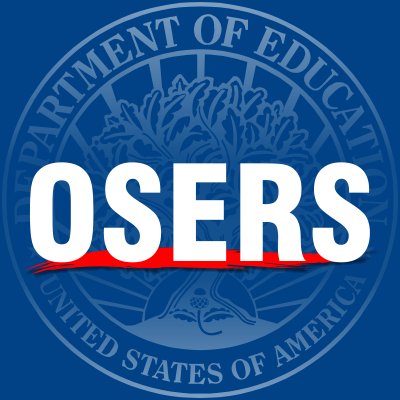OSERS Assistant Secretary Johnny Collett has released a framework that highlights the way OSERS will focus its work to advance the Secretary of Education’s priorities and continue to make progress toward achieving its mission to improve early childhood, educational, and employment outcomes and raise expectations for all people with disabilities, their families, their communities, and the nation.
https://www2.ed.gov/about/offices/list/osers/framework/osers-framework-9-20-2018.pdf
As an example of OSERS’ commitment to rethink anything and everything to ensure that it is in the best position to achieve its mission, Assistant Secretary Johnny Collett addressed the need to rethink special education in a new blog. The blog highlights the importance of acknowledging the unique needs of each child and then finding the best ways to prepare each individual for successful careers and a meaningful life.
Rethinking Special Education
Douglas, an 11-year-old 6th grader from Massachusetts, has dyslexia and Attention-Deficit/Hyperactivity Disorder (ADHD). He struggled in school from kindergarten through 4th grade, feeling frustrated in a learning environment that did not meet his individual needs and caused him to question his ability to succeed.
Douglas recently wrote President Trump and asked, “How can you as our president help kids like me get the right tools so they don’t get left behind?”
I met with Douglas and his parents on behalf of the president and the U.S. Department of Education this spring when his family visited Washington. We discussed his previous struggles and frustrations as well as his parents’ determination to get Douglas the help he needed to succeed in school.
We must rethink special education in America for students like Douglas. “Rethink” means everyone questions everything to ensure nothing limits any student from being prepared for what comes next. That begins with acknowledging the unique needs of each child and then finding the best ways to prepare each individual for successful careers and a meaningful life.
As a former high school special education teacher and state special education director, I have learned that delivering on the promises we have made to children and parents will not be achieved by merely tinkering around the edges.
Rethinking special education will require an unwavering commitment to address barriers that stand in the way of improving opportunities and outcomes for each child, and to make needed changes at the federal, state, and local levels. We must be willing to confront anything that does not facilitate needed improvement. That includes structures that limit opportunities for children with disabilities; practices that put the needs of “the system” over the individual needs of a child; policies that, no matter how well-intentioned, do not have the impact of improving outcomes for students; or laws and regulations that constrain innovation. We cannot ignore the challenges that students, parents, teachers and schools face.
Any policy that could deny education services to a student who needs them would be a failed policy. So we must root out anything that separates students from the individualized education they deserve.
The Office of Special Education and Rehabilitative Services is committed to confronting these—and any other issues—that stand in the way of a child’s success. We will partner with parents and families, individuals with disabilities—anyone and everyone who is focused on raising expectations and improving outcomes for individuals with disabilities.
This commitment means acknowledging that states, school districts, and parents know the needs of their students better than we do. Our goal is to provide them with as much flexibility and support as possible so that they can ensure their students’ needs are being met.
Douglas’ parents told me it wasn’t until Douglas was tested, properly diagnosed, and enrolled in a school that understood his unique traits and addressed his needs that things began to get better for him. In a different school, Douglas told me he feels comfortable and confident. He said, “I’m getting the right tools I need and learning how my brain works.”
Every student deserves the same opportunity and the same individualized attention that Douglas has. To be sure, this is and will continue to be hard work. However, it’s not just about working hard. It’s about working differently and more collaboratively, because meaningful and effective collaboration with all those who have a stake in the success of individuals with disabilities is critical to improving the outcomes that we envision.
The changes we need won’t happen overnight or only through the commitment of a few; but the work is worth it, because at the heart of all our efforts are the individuals we serve and their futures.
It is unacceptable for us to watch another generation of kids fail to achieve the outcomes they could have achieved just because the adults around them would not commit to solving difficult issues. We must demonstrate the courage and persistence necessary to achieve the goals that we, and most importantly the individuals we serve, envision.
No two children are the same, so no two children’s learning experiences should look the same. A personalized, student-centered education empowers students with disabilities and gives them the hope of living successful, independent lives, while a one-size-fits-all approach to education only limits students’ potential. Each child’s education should embrace his or her diverse traits and aspirations.
As we start this school year, I ask you to join me in rethinking special education in our country. While we all have a stake in the success of children with disabilities, no one has more of a stake in their success than they do.
The work is too important, the need is too urgent, and the stakes are too high for us to settle for anything less than whatever it takes to deliver on the promises we have made to children and families in our country.

